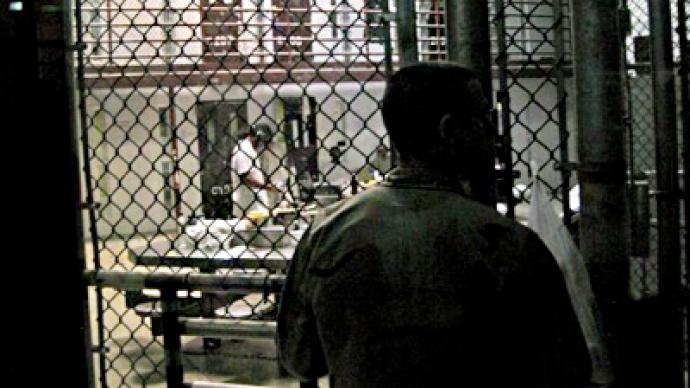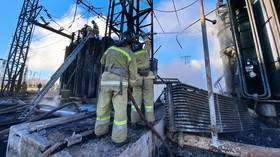Leaked Gitmo files assess threat to US from senile men and adolescents

Over 700 secret files on the operation of the Guantánamo Bay prison camp give a sneak peek into the stories of dozens of people who were held in legal limbo and maltreated on no other grounds than they may know something useful to the War on Terror.
The documents, which were published on Sunday, were among the classified files obtained by the WikiLeaks group. A source not linked to the anti-secrecy project handed them over to the New York Times, which shared them with some other reputable media. The leaked files give detailed accounts on Gitmo detainees, the reasons why the US government chose to incarcerate them, and their interaction with the prison staff.
While some of the inmates, like Khalid Shaikh Mohammed, the planner of the 9/11 attacks, leave little doubt about why they were held behind bars, for many others this is far from true. Naqib Ullah, who was about 14 when captured in 2003, spent a year in US prison after having endured a similar fate in a Taliban camp. The insurgents had abducted the boy from his home village in an attempt at forced conscription.
“Though the detainee may still have some remaining intelligence, it's been assessed that that information does not outweigh the necessity to remove this juvenile from his current environment and afford him an opportunity to 'grow out' of the radical extremism he has been subject to," one assessment among the files says.
Gitmo’s oldest inmate, Mohammed Sadiq, who was 89 in 2002, when he was imprisoned, exhibited symptoms of dementia, depression and sickness at the time of his arrival. After six months, interrogators concluded that the old man, who was arrested after suspicious documents were found in a raid on his house, had no valuable information. It took the US four more months to repatriate him to Afghanistan.
Some cases show people incarcerated on unreliable information supplied by untrustworthy sources. Hajji Jalil, then a 33-year-old Afghan, was captured in July 2003. The chief of intelligence in Afghanistan’s Helmand Province said Mr. Jalil was involved in an ambush that killed two American soldiers. But American officials said later that the intelligence chief and others had “targeted” Jalil “to provide cover for their own involvement in the ambush. The US also relied on information obtained from a small number of detainees using harsh methods of interrogation.
Among the inmates was a Sudanese cameraman for Al Jazeera, Sami al-Hajj. Interrogators questioned him about the Arab TV network’s “training program, telecommunications equipment, and newsgathering operations in Chechnya, Kosovo, and Afghanistan,” the leaked files reveal. He was released in 2008 and returned to work for Al Jazeera.
The information may raise question about how decisions were taken about the fate of inmates. At the moment 172 people remain prisoners at Guantanamo Bay, most of them rated as a “high risk” of posing a threat to the US and its allies. However the same rank was given to about one third of some 600 inmates already transferred to other countries to be freed or passed to the custody of other governments.
There is also possible political fallout from the publication. The files show that the US authorities listed the main Pakistani intelligence service, the Inter-Services Intelligence Directorate (ISI), as a terrorist organization alongside groups such as Al-Qaeda, Hamas and Hezbollah, which is bound to raise tension between Washington and its key ally in the region.
A Pentagon spokesperson cited by the Guardian newspaper said: "Naturally we would prefer that no legitimately classified information be released into the public domain, as by definition it can be expected to cause damage to US national security. The situation with the Guantanamo detention facility is exceptionally complex and releasing any records will further complicate ongoing actions."















